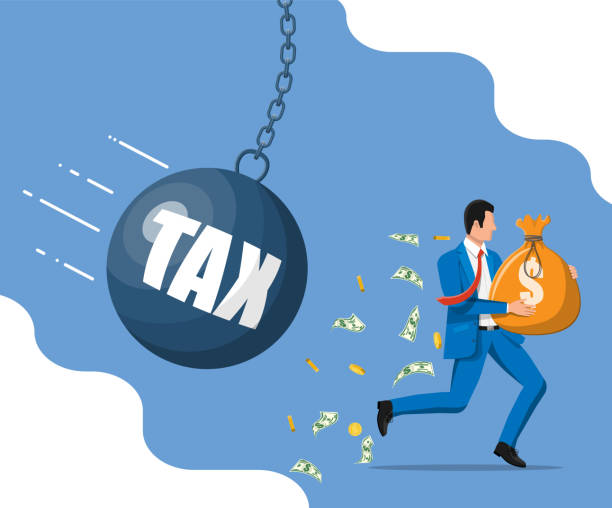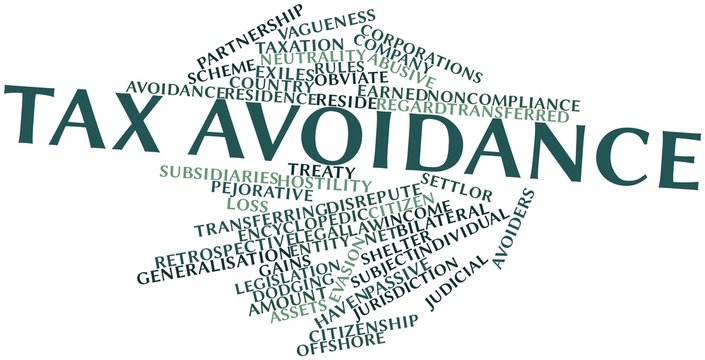Tax evasion and Tax avoidance
Tax evasion

Tax evasion is a serious offense that can have severe consequences for individuals and businesses alike. It involves the intentional failure to report income or assets to tax authorities, resulting in underpayment or non-payment of taxes owed. Tax evasion not only hurts the economy by reducing government revenue, but it also undermines public trust in the fairness of the tax system.
While some may see tax evasion as a victimless crime, it ultimately affects everyone. It puts an unfair burden on those who do pay their taxes and can lead to cuts in essential services such as healthcare, education, and infrastructure.
It's important for individuals and businesses to understand the consequences of tax evasion and take steps to ensure they are complying with all applicable tax laws. This includes keeping accurate records, reporting all income and assets, and seeking professional advice when necessary. By doing so, we can all contribute to a fairer and more prosperous society.
—

Tax evasion is a serious issue that affects not only the government but also the citizens of a country. It refers to any activity that aims to reduce or avoid paying taxes owed to the government. There are several types of tax evasion, including underreporting income, hiding assets, and claiming false deductions.
The consequences of tax evasion can be severe, ranging from hefty fines and penalties to criminal charges and even imprisonment. The penalties for tax evasion vary depending on the severity of the offense and can include monetary fines, interest charges, asset seizure, and even jail time.
It is important for individuals and businesses to understand the gravity of tax evasion and take necessary measures to ensure compliance with tax laws. In this section, we will explore different types of tax evasion in detail and discuss the penalties associated with them.
Types of Tax Evasion
Tax evasion is commonly practiced in the informal economy. This happens majorly because of two factors, the lack of compliance and the lack of enforcement. One of the most common ways to evade tax is smuggling. However, there are two broad categories to classify tax evasion which are explained below:
Tax evasion is a serious problem that can have significant negative impacts on the economy and society as a whole. it is often practiced in the informal economy due to the lack of compliance and enforcement. When we talk about tax evasion, there are two broad categories that we can use to classify it: active tax evasion and passive tax evasion.
Active tax evasion refers to situations where individuals or businesses take deliberate actions to avoid paying taxes. This may involve hiding income or assets, underreporting revenue or profits, or claiming false deductions or credits.
Passive tax evasion, on the other hand, occurs when individuals or businesses fail to comply with their tax obligations due to negligence or oversight. This may include failing to file returns on time, failing to pay taxes owed, or making mistakes on their returns.
Regardless of whether tax evasion is active or passive in nature, it can have serious consequences for both taxpayers and society as a whole. It can lead to lost revenue for governments that rely on taxes to fund public services such as healthcare and education. It can also create an uneven playing field for businesses that do comply with their obligations by giving a competitive advantage to those who do not.
Overall, it is important for individuals and businesses alike to understand the importance of complying with their tax obligations and working together with authorities towards creating a more fair system for all citizens.
Evasion of Assessment
A tax evader by filing a false return can avoid the tax assessment. Fake returns conceal income and list erroneous deductions. This leads to an incorrect assessment of the tax. In case the person transfers taxable assets in the books to mislead the Internal Revenue Services (IRS), it is also considered an attempt to evade the assessment.
Evasion of Payment
If the taxpayer hides the assets after the tax is due, then it is an attempt to evade the payment. Concealment of the assessable assets or money in a family member’s or foreign account is a different way of avoiding tax payments.
Tax avoidance

Tax avoidance, on the other hand, is a legal method by which you can reduce your tax liability. Tax avoidance entails using loopholes in legislature, or undertaking various other activities by which you can reduce the amount that you owe in taxes.
For instance, if you invest in financial instruments outlined in Section 80C of the Income Tax Act, such as Public Provident Fund or Equity Linked Savings Scheme, you can claim deductions. This will be considered tax avoidance.
There are various legal methods of tax avoidance that you can undertake, such as taking out a loan for an electric vehicle or an education loan. Through tax planning, you can approach tax avoidance honestly that does not defy the law.
Difference Between Tax Evasion and Tax Avoidance
To understand what tax evasion is and how it is different from tax avoidance, you can refer to the following points:
1. Nature
Tax evasion is an illegal method of minimizing tax liability. Tax avoidance, on the other hand, is a legal method of reducing the amount of taxes that you owe.
2. Motive
The motive behind tax evasion is to eliminate taxes completely. Tax evasion aims to lie to authorities and find immoral ways to reduce tax liability. Tax avoidance is a moral and legal method to minimize tax liability. The motive is to reduce the amount of tax that you owe.
3. Consequence
Tax evasion is illegal, thereby attracting imprisonment, fines or both, if found out. Tax avoidance can be done legally. If you have deliberately used loopholes to avoid taxes, you may attract legal penalties. Tax avoidance is usually not considered a criminal offence.
4. When Does it Happen?
Tax evasion usually happens once the tax has become due. Tax avoidance, on the other hand, can occur before the tax liability.
5. How it is Done?
When it comes to tax evasion, it is usually done through illegal means. Tax avoidance is done legally through acts such as tax planning.
Which is the Best Way to Save Taxes?

Now that you know the difference between tax evasion and tax avoidance, it may be obvious to you that taking the legal route is a better way to reduce your tax liability. Tax evasion can lead to criminal consequences including imprisonment. To avoid that, it is better to undertake tax planning and find a legal way to save taxes.
Final Word
Tax evasion and tax avoidance are two of the most common ways to reduce taxes. While tax evasion is illegal, tax avoidance is a legal and ethical way to reduce your tax liability. It is always better to find a legal way to reduce your tax liability rather than taking the high road.